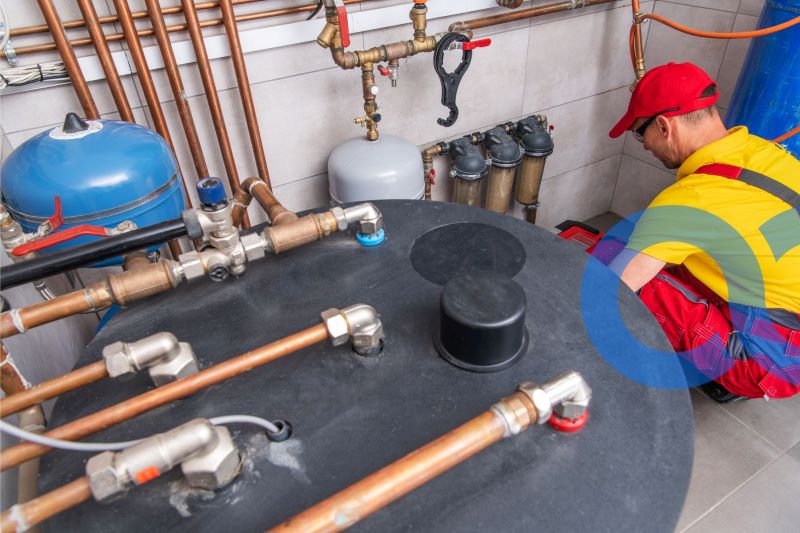The water distribution in Tunisia is governed by a set of rules and regulations aimed at ensuring equitable and efficient access to this essential resource. Billing rules for water in Tunisia are designed to guarantee the sustainability of water supply, promote conservation, and efficient management of this resource, while considering economic, social, and environmental factors.
In this article, we will delve into the key aspects of water billing rules in Tunisia, along with the challenges and initiatives aimed at enhancing water management in the country.
- I-Water Tariffs in Tunisia
- II-Precise Measurement of Water Consumption in Tunisia: Rigorous Meter Management
- III-Incentives for Water Conservation in Tunisia: Addressing the Scarcity of the Resource
- IV-The Future Challenges
- V-Conclusion
I-Water Tariffs in Tunisia
The water tariffs in Tunisia are carefully established by the Ministry of Agriculture, Water Resources, and Fisheries and vary based on the user category and the quantity of water consumed.
Households in Tunisia enjoy relatively affordable water rates. These rates are calculated based on measured consumption, with consumption tiers. As consumption increases, the rates also rise. This structure aims to encourage water conservation among individuals, thereby promoting more responsible usage.
Businesses and industries pay higher water tariffs due to their intensive use of this resource. Industrial tariffs vary depending on the size and sector of the business. This approach encourages businesses to adopt more efficient water consumption practices while generating revenue to support the hydraulic sector.
For the agricultural sector, tariffs depend on the type of crop, irrigated area, and irrigation methods used. This approach considers the specific needs of agriculture while promoting responsible water usage in this vital sector for the Tunisian economy.
Public institutions such as schools, hospitals, and other establishments benefit from special tariffs tailored to their essential needs. This ensures uninterrupted access to water for crucial public services.
The primary objective of this tariff structure is to promote more efficient water usage while taking into account the specific needs of each user category. It encourages water conservation among individuals, prompts businesses to invest in sustainable practices, and fosters more responsible water management in the agricultural sector. Additionally, water tariffs contribute to generating revenue to support the hydraulic sector and ensure equitable access to this vital resource. However, these tariffs must also consider the challenges related to water subsidies for households, the risk of wastage, and the necessity to preserve water resources in the context of water scarcity in Tunisia.
In case of non-payment of water bills, the National Water Supply and Distribution Company ‘SONED’ has the right to cut off the water supply. However, this action is typically taken only after several payment reminders and attempts at negotiation with the user. Tunisian authorities encourage mediation and conflict resolution before resorting to water cutoffs, especially for households.

II-Precise Measurement of Water Consumption in Tunisia: Rigorous Meter Management
The precise measurement of water consumption is at the core of the billing system in Tunisia. Water meters are widely used, carefully calibrated, and regularly monitored by the water distribution company ‘SONED.’
This ensures that users pay according to their actual consumption, thereby enhancing trust in the billing system. Moreover, this constant monitoring enables the swift detection of any anomalies in consumption measurement, providing essential responsiveness to address potential issues. The commitment to accurate and reliable water meters, coupled with proactive management of irregularities, contributes to ensuring fair and transparent billing for all water users in Tunisia. This strengthens the sustainability of water supply and promotes responsible usage of this precious resource.
III-Incentives for Water Conservation in Tunisia: Addressing the Scarcity of the Resource
The challenges arising from water scarcity in Tunisia have led to the implementation of strategies aimed at promoting the preservation of this vital resource, a topic highlighted under the title ‘Encouragement to Water Conservation.’
Emphasis is placed on promoting more efficient water usage in Tunisia, which is reflected in the implementation of progressive tariff systems for households and businesses. These systems provide financial incentives based on limiting water consumption, with costs increasing as consumption rises. Moreover, certain regions of the country have introduced customized incentives, including reduced tariffs to encourage the adoption of more efficient irrigation technologies in the agricultural sector. These measures promote water conservation while supporting responsible management of water resources in Tunisia, a crucial initiative considering the scarcity of the resource and the challenges posed by climate change.
Through these innovative tariff structures and specific incentives, Tunisia is actively working towards sustainable water management and responsible use of this precious resource.

IV-The Future Challenges
Water management in Tunisia confronts ongoing challenges, including water scarcity, the impacts of climate change, and population growth. To address these challenges, the country must continue to develop effective water management policies, promote water conservation, and invest in sustainable infrastructures and technologies.
V-Conclusion
Despite the progress made, water management in Tunisia continues to face significant challenges. Water scarcity, the impact of climate change, and population growth demand ongoing action. The country must persist in developing effective water management policies, encouraging conservation of this resource, and investing in sustainable infrastructures and technologies to ensure a more resilient water future.




